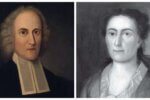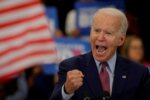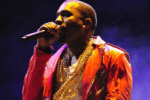The largest church in Europe today is pastored by a young Nigerian–a man of faith who won’t let racism or harassment stop him from changing a nation.
It is early on a Sunday afternoon in winter, and almost 100 people are packed into a windowless basement room at a church in Kiev, Ukraine. After an hour, the low-ceiling room smells heavily of stale cigarette smoke and body odor. These first-time visitors have been listening to what they can expect as new members of the Embassy of God church.
At the end of the session, each newcomer is paired up with a mentor–a specially trained church member who guides the new believer through four consecutive days of lectures, prayers and church services. About 25 percent of the newcomers will come back, the pastor in charge of the program says.
“We don’t get people who are just curious,” pastor Armen Movsisyan says, after making sure all the newcomers are paired with mentors. “Everybody who comes here has a problem. Everybody is in crisis.”
Tatyana Pavlenko, 28, came to “learn how to live God’s law” so that she could turn her husband from his “devilish life” of drinking and “acting like a hooligan.” Proskoviya Kireyeva, 72, has a more specific request of God.
“I need one more thousand, that’s all. There’s a one-room apartment in the city for $17,000. I just need $1,000. I came to pray for that. That’s the only reason I came,” she says.
First-time visitors like Pavlenko and Kireyeva come by the hundreds every month to the Embassy of God. Most of them are unchurched and desperate. They’re searching for a way to cope with alcohol, drugs, a lack of money or spouses who stray.
These are people who could have chosen a fortune-teller or exorcist from local newspaper classifieds. Or they could do what Pavlenko and Kireyeva’s ancestors did: light a candle in front of an icon in a Russian Orthodox Church.
Instead, most of them choose to come here because they have heard about the healing and preaching abilities of one man–pastor Sunday Adelaja, a 35-year-old Nigerian.
“Pastor Sunday”–as he is known to church members, skeptics and enemies alike–has created in nine years what may be the largest church in Europe. That, in itself, is striking.
Even more remarkable is the fact that he has done it in the capital of Ukraine, a country of 49 million between Russia and Poland, where fewer than 2,000 black residents live–all of them subject to frequent racial harassment and sometimes violence.
“Some people ask, ‘Why do we need this black-skinned man to tell us what to do?’ Unbelievers ask this question,” says Adelaja while preaching on a Sunday afternoon to a sea of 7,000 upturned faces. “But you–you have opened your eyes. You can see the divine within me, not just the black skin. You–you can get beyond the broken Russian I speak.”
That evening in an empty, expensive Kiev restaurant, Adelaja recalls in a voice hoarse from preaching two services how he was skeptical of a divine vision that sent him to all-white Ukraine.
“I said, ‘God, I want to know that You really want me to go to Kiev,” he told Charisma. “It is just not so easy to do this as a black man.'”
After leaving Belarus, where he had studied for six years, Adelaja started his ministry in February 1994 with seven people who met together in a rented apartment in Kiev, a city of 1 million on the banks of the Dnieper River.
Today, acting out a plan he says God unveiled to him in a series of visions, Adelaja sits at the head of the Embassy of the Blessed Kingdom of God for All Nations, a mini-Protestant empire in an overwhelmingly Orthodox Christian nation.
Adelaja–a fit man with a ready, confident smile–is the host of a weekly Christian TV show, founder of a feeding and health center for the homeless, and author of religious books. He has also helped plant 200 “daughter” churches in 15 countries including two recently in the United States.
“My American friends will be flabbergasted when they find out that we are planting churches there. We hope to have six by the end of the year,” he says, adding that congregations are already in Sacramento, California, and Sarasota, Florida. “The Americans are usually sending money to this part of the world.”
The core of his Kiev ministry is preaching, healing and providing desperately needed services in a society that is, at best, inept at coping with rampant alcoholism, widespread poverty and severe strains on families. Adelaja’s management style, his use of television and the content of worship services are firmly within the mainstream of Spirit-filled congregations in the United States–perhaps even on the conservative side.
But in Ukraine, this is all new. In Soviet times and before the 1917 Russian Revolution that brought Communists to power, Ukraine had a small Protestant minority that knew its place and never took on the dominant Russian Orthodox Church. With his ambitious church-planting campaign and growing Kiev megachurch, Adelaja most definitely does not know his place. Consequently, his enemies are not hard to find.
They view him as a foreign-financed charlatan who brainwashes and hypnotizes congregants into parting with their money. Speaking in tongues and falling under the power of the Holy Spirit are just more proof of the cultlike nature of the Embassy of God church, according to critics who nearly succeeded in getting him kicked out of Ukraine in 1998.
To this day, Adelaja says, Orthodox Christian leaders are preventing him from getting city permission to build a proper church. Instead, he must rent an indoor sports facility that can hold only one-third of his congregation at once.
Adelaja’s steadfast and most powerful foes are not shy about their desire to have the Nigerian shut down. On Kiev’s Right Bank, not far from the monastery that is one of Orthodox Slavs’ most holiest sites, are the offices of the Union of Orthodox Brotherhoods.
Led by Valentin Lukiyanik, the Union of Orthodox Brotherhoods represents 36 lay organizations in Ukraine that are loyal to the 80 million-member Russian Orthodox Church. Sitting under a portrait of Patriarch Alexy II, the Moscow-based head of the Russian Orthodox Church, Lukiyanik explains why Adelaja is so “dangerous.”
“Sunday is not a classical Protestant. He is a neo-Protestant, not like a Baptist,
Adventist or even Pentecostal. He is something new. What he has is a totalitarian, destructive cult,” says Lukiyanik, who is not so keen on Roman Catholics either, having organized street demonstrations against Pope John Paul II’s 2001 visit to Ukraine.
Lukiyanik, a broad-faced affable man who works in an emergency room in a Kiev hospital, concedes that Adelaja has a vibrant, growing church but predicts it will begin to evaporate as Ukraine’s economic situation improves.
“Yes, they’ve got influence. But it is an aberration,” he says. “I’d say it is some kind of psychosis. We consider it to be some kind of psycho-cult that is well-financed.”
That financing, says Orthodox spokesman Father Georgy Kovalenko, comes from Adelaja’s laundering of money for Nigerian drug barons. The accusation–unsubstantiated and denied with a laugh by Adelaja–has wide currency in Ukraine’s yellow press in part because Nigerians do play a role in the country’s heroin trade.
Though Adelaja has enemies in high places, he also has well-placed friends, including three members of the congregation who sit in Ukraine’s lower house of parliament. One such church member proved to be an important ally when Orthodox church leaders launched a campaign in 1998 to slow the spread of charismatic churches by revoking Adelaja’s Ukrainian visa.
At one point, Adelaja had two weeks to leave the country. He refused and Vladimir Shushkevich, a church member and then-parliamentarian, gathered 60 signatures in parliament and thwarted the campaign, allowing Adelaja to stay.
Adelaja’s Nigerian citizenship is his Achilles’ heel. As recently as February, the Russian Orthodox Church in Kiev reported that Adelaja was under investigation by the Ukrainian Prosecutor’s Office and that his
permission to live in Ukraine with his wife and three children was in jeopardy. The Orthodox report was picked up by Ukrainian mass media, prompting a robust denial on the Embassy of God Web site (www.godembassy.org).
The provocations, innuendo and public tussles are likely to continue as long as Adelaja is Ukraine’s most visible charismatic leader. Another African, pastor Henry Madava of Zimbabwe, leads an 8,000-member charismatic church in Kiev. His profile, however, is nothing like that of Adelaja, who is becoming an international figure with worldwide church plants and the occasional political pronouncement.
In January, he and pastors from 30 other countries attended a three-day conference in Washington, D.C., of Generals of Intercession, led by international prayer leader Cindy Jacobs. Afterward, Jacobs released a statement summing up the religious leaders’ consensus on the probable war in Iraq.
“Each of us felt in our hearts that God wants to humble the spirit of Islam and its god, Allah, and that God is leading President Bush,” she said. “We felt that the true God would prevail and the region would open for the gospel.”
When Adelaja got back to Kiev, he played a tape–in English–of Jacobs’ prophecy about the Embassy of God. When an assistant translated it into Russian for the congregation of 7,000, people rose to their feet, clapping enthusiastically. One middle-aged woman collapsed and twitched on the floor.
Jacobs proclaimed in a high-pitched shout: “Sunday, the Lord says: ‘You are to prepare that army. I put a sickle in your hand. Be ready for the harvest. This is why I brought you from Nigeria. This is why I brought you to Ukraine.'”
Later in the service, Adelaja preached about the importance of supporting U.S. foreign policy, saying: “George Bush is our brother. He is a believer.” That evening, over dinner, Adelaja said he was ready to send missionaries to Iraq “as soon as it opens up.”
These kinds of ventures into world politics by the head of Ukraine’s largest church drive Orthodox Christian leaders to distraction. They lead to accusations that Adelaja is a national-security danger and should be kicked out of the country.
Such threats aren’t empty. The pastor’s friend Alexei Ledyayev, head of the charismatic New Generation movement in nearby Latvia, was stripped of his Russian visa last year by authorities who apparently were worried about his preaching on political themes.
Ultimately, Adelaja plans to leave Kiev. One reason is, he received a divine vision to bring the gospel to Arabs, to enlighten them just as he has Russians. Another is that Kiev is not a hospitable place for a black family of five to live. This situation is unlikely to improve anytime soon, according to a local human-rights activist who monitors racially motivated attacks in Ukraine.
Most of the recent beatings of African and Indian students have occurred in southern Ukraine, but Kiev too is a dangerous place for a dark-skinned person to walk about, particularly at night, says Maxim Baryshnikov, an activist who teaches law at Kiev’s International Solomon University. There is no single reason for the attacks, but Baryshnikov says that generally the dark-skinned immigrants’ “lifestyle and values are not understood by the local people.”
“From ignorance and misunderstanding it is only a small step to violence,” Baryshnikov says.
Adelaja is driven back and forth between the Embassy of God offices and his home on the edge of Kiev. His three children are not yet school age. Thus, he avoids having to ride Kiev’s subway or buses, the places where racial attacks most frequently occur.
Two years ago, he started to travel abroad more frequently, planting churches in Western Europe, former Soviet republics, as well as in the United Arab Emirates and, secretly, in Afghanistan. Eventually, the pastor says quietly during an interview, he will leave Ukraine for western Europe, where he will plant churches and devote more energies to winning Muslim converts in the Middle East.
“I would really like the Arabs to enjoy what the Russians have come to have. … I’m only 35. Our church is only eight years old. But I am very ambitious. I want to touch half a billion people before I die,” he says, adding that his work here still has a long way to go. “I have a target of bringing 5 million people to Jesus in Ukraine. That is the minimum before leaving.”
Sipping a tall glass of fresh-squeezed carrot juice after a long Sunday packed with a pair of three-hour services and numerous meetings and private prayer requests, an exhausted Adelaja outlines how he expects his life as a religious leader to unfold.
“I think it will take until I am 40 years old to reach my goal in Ukraine. After that, from when I am 40 to 50 years old, I will work on transforming Europe. From the age of 50, I’d like to touch another two continents, even if only slightly.
“And, I want to work on pastors,” he adds, while noting that he is a slightly better preacher in English than Russian. “I want to raise up 50,000 pastors all over the world. Between the ages of 60 and 70, I will work on deepening the work that I’ve already started.”
In a nation devastated by Soviet atheism, Ukrainians are still uneasy about the gifts of the Holy Spirit.
One thousand years of Orthodox Christianity and 70 years of state-sponsored religious repression have taken a heavy toll on Ukraine.
Orthodoxy’s emphasis on participation in long liturgies rather than studying the Bible means that some nominal Christians in Ukraine aren’t quite sure who Jesus is. The Soviets’ severe crackdown on religion means that Ukrainians older than 30 grew up in a country where religious expression was discouraged, if not punished.
In this environment, pastor Sunday Adelaja must constantly stress, especially to newcomers to his Embassy of God church, that his gift of healing comes from God, not from his own power as a miracleworker.
Adelaja was raised as a Presbyterian in a village of 100 people in Nigeria’s Ogun State. In 1986, at the age of 19, he was saved while watching pastor William Kumuyi of Nigeria on television. Six months later he was in the Soviet Union studying journalism in Minsk and praying secretly with other foreign Christian students.
It was during this time he began the intensive praying and fasting that eventually led him to understand that God wanted him to found a megachurch in Kiev. It was also when he began to hear the Holy Spirit.
“Because of my life, I have a kind of authority, a credibility with God. People can have access through me. But if He doesn’t show up, nothing happens,” Adelaja says, adding that this has never happened but admitting that he is “afraid” it could.
To stay plugged in and able to mediate, pastor Adelaja makes a point of devoting one week of every month for prayer and meditation. Otherwise, the demands of his 21,000 congregants can be overwhelming, he says.
On a Sunday afternoon, after leading one long service and getting ready for another, Adelaja was deluged in his office with private prayer requests.
A woman in her late 50s walked into his office carrying a package of cotton bandages. Her granddaughter had been severely burned the previous night when a pot of boiling water turned over. Could Adelaja pray over the bandages that would be used in the hospital?
The pastor closed his eyes, scrunched up his face and held the bandages tightly for about 15 seconds.
A few minutes later, a mother and her sunken-eyed daughter were ushered into his office. They wanted advice on whether the girl should go ahead with an expensive liver operation or keep praying for a miracle. Clasping hands with the girl and her mother, Adelaja prayed that God would smooth the way for an operation if that was His will.
Adelaja says that his gifts of healing are mostly spiritual but that occasionally in a large crowd he can pick out a person, “sense and hear” what ails them, and heal the disease.
“Sometimes, I can feel the Holy Spirit behind me, talking,” he says.
Most recently, the Adelajas’ daughter, Perlina, was diagnosed with a brain tumor while still in her mother’s womb.
The tumor, American doctors said, would prevent the child from developing normally but an operation on the newborn’s brain would be risky.
With an electric guitarist’s soft, soulful melody in the background, Adelaja related the story to his rapt congregation during a February service.
On January 13, minutes after Perlina was born in the United States in a Sarasota, Florida, hospital, Adelaja took the child and “prayed and prayed and did my thing,” he says.
The next day, an X-ray of the newborn showed the tumor had disappeared, he testified.
The pastor says his power to diagnose an illness and heal it comes from his “intensive search” for the Lord.
“I asked to see and for the ability to hear in the Spirit,” he says. “Before, I was spiritually deaf.”
Frank Brown is a correspondent for Charisma based in Moscow. He traveled to Kiev to interview Sunday Adelaja.






Leave a Comment
You must be logged in to post a comment.